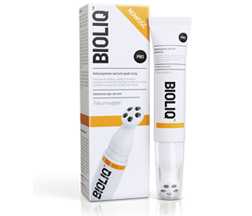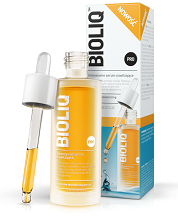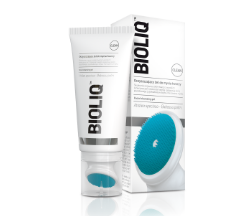Continuous stress, haste, exposure to external factors, chronic fatigue and sleep deprivation - all of these have a negative effect on the condition of your skin, which - like your entire body - functions according to a biological clock. If you try to adjust it by force, your skin may rebel.
Each of us functions according to a biological clock, which stabilizes already in early childhood. It is a mechanism that affects the whole organism during both day and night, so when planning the care of your skin, you should take it into account. Find out how to do it.
What happens to your skin in the morning?
When you wake up, pineal gland (the gland responsible for the secretion of melatonin, which determines proper sleep) slows down, and the adrenal glands producing stress hormones - cortisol and adrenaline - start to work intensively. It is thanks to them that you have a lot of energy to act in the morning. Your skin should "feel" similarly. In the morning it needs to be moisturized and protected, so it is worth to reach for a moisturizing cream with antioxidants that will take care of it all day long. During the application of the cream you can also perform a gentle massage, which will additionally stimulate microcirculation. You should also not forget to take care of sensitive skin around your eyes, which may still be slightly swollen in the morning.
In this case, it is worthwhile to reach for eye creams, which, thanks to active ingredients such as Euphrasia officinalis, green tea or chestnut extracts, stimulate microcirculation and reduce shadows and the so-called bags under the eyes.
What happens to your skin at noon?
At noon there may be a slight setback. The stomach produces more gastric juice, you may feel a slight hunger. This is the perfect time for lunch, and for your skin it is the best time for unpleasant treatments such as epilation, because it is then more resistant to pain than it is in the evening[1]. The middle of the day is not the best time for oily skin because the sebaceous glands work more intensively at that time. Using matting cosmetics in the morning can significantly reduce this problem. It is good to use the free Saturday noon for a thorough cleansing or peeling. Due to effects of the sun, which warms your skin intensively at noon, the pores of the skin are more open, which makes it much easier to get rid of impurities leading to unwanted imperfections.
Evening - time to relax and rest
In the evening your body slows down. Pressure drops, the pulse rate slows down, the concentration declines. Night is the best time for your skin to regenerate. However, in order for it to really "rest", you ought to remove makeup and clean it thoroughly. It is best to remove makeup using a mild micellar fluid, which will precisely, yet gently remove it without affecting the hydrolipidic layer of the skin. You can also apply a facial cleansing gel. This will allow you to completely remove any residue of makeup and other impurities on the surface of the skin, which contribute to the formation of imperfections. A great idea is to use silicone brushes, which will additionally ensure the peeling effect. You may not have known, but in the evening the blood flow in your skin increases and its permeability is much higher than during the day[2]. At this time of day, the skin absorbs nutrients perfectly, so you should take advantage of this by applying a concentrated serum and then applying a rich nourishing cream that will regenerate it intensively. Ideally, cosmetics containing oils, such as macadamia oil, which strengthens and regenerates the skin. How quickly your skin regenerates also depends on the quality of your sleep. If you often stay late at night, the secretion of melatonin is disturbed and the level of cortisol increases, which makes regeneration much more difficult. What is more, when you sleep too little, you are more exposed to the harmful effects of free radicals which have an ageing effect on the skin.
The needs of the skin are completely different depending on the time of day. In the morning, the skin needs to be moisturized and protected, while in the evening, it craves for a solid dose of nourishment and regeneration. Matching skin care to the biological clock makes it more effective and the skin reacts much better to the treatments applied. Therefore, for the sake of a healthy and young appearance, you should not overlook such an important aspect.
[1] C J Glynn MB FFA RCS and J W Lloyd FFA RCS, The Diurnal Variation in Perception of Pain, Volume 69 May 1976, Section of Anaesthetics; Joshua Aviram, MA, Tamar Shochat, DSc, Dorit Pud, PhD, Pain Medicine, Volume 16, Issue 6, June 2015, Pages 1137–1144, Pain Perception in Healthy Young Men Is Modified by Time-Of-Day and Is Modality Dependent
[2] Alexis B. lyons, MD; Lauren Moy, MD; Ronald Moy, MD;
and Rebecca Tung, MD, Circadian Rhythm and the Skin: A Review of the Literature, Journal of Clinical and Aesthetic dermatology, September 2019, volume 12, Number 9


.png)
.png)
.png)


.png)
.jpg)

